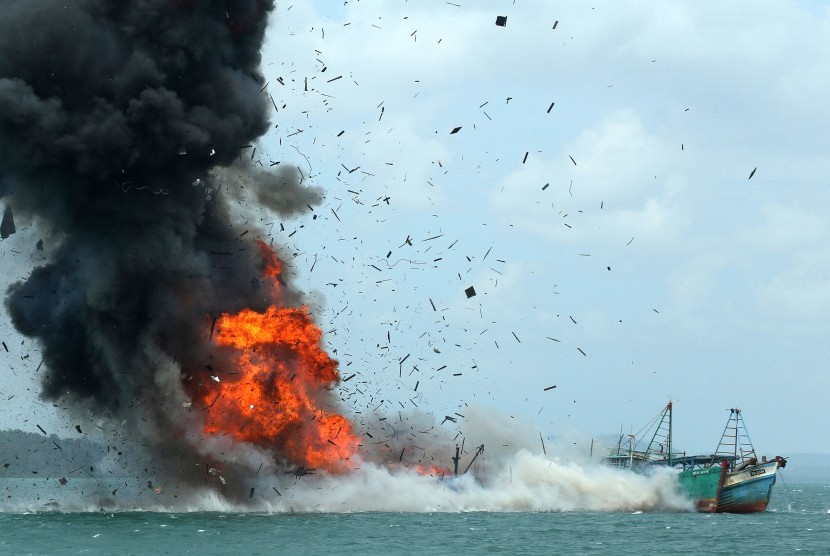REPUBLIKA.CO.ID, JAKARTA -- The Indonesian Marine and Fisheries Ministry (KKP) should facilitate national entrepreneurs to anticipate a trade war between the US and the People's Republic of China (PRC). Executive Director of the Center for Maritime Studies for Humanity, Abdul Halim, said there are no strategic efforts made by the KKP in facilitating businesses, in order to take advantage of the trade war between the US and China.
The KKP policy of sinking foreign fishing vessels and evaluating taxation has caused uncertainty in fisheries business.
"It is difficult for entrepreneurs to make breakthroughs," he stated here on Monday.
He noted that small, medium, and large-scale fisheries entrepreneurs are making efforts to survive amid uncertainty in fisheries business.
The United States and China have escalated their acrimonious trade war, implementing punitive tariffs of 25 percent on $16 billion worth of each other's goods, even as mid-level officials from both sides resumed talks in Washington.
The world's two largest economies have now slapped tit-for-tat tariffs on a combined $100 billion of products since early July, with more in the pipeline, adding to risks to global economic growth. China's Commerce Ministry remarked that Washington was "remaining obstinate" by implementing the latest tariffs, which kicked in on both sides as scheduled at 12:01 p.m. in Beijing (0401 GMT).
"China has resolutely opposed this and will continue to take necessary countermeasures," it stated in a brief statement.
"At the same time, China will file suit regarding these tariff measures, under the WTO dispute resolution mechanism, to safeguard free trade and multilateral systems and defend its own lawful interests," it stated, as reported by Reuters.
President Donald Trump has threatened to slap duties on almost all of the more than $500 billion of Chinese goods exported to the United States annually unless Beijing agrees to sweeping changes to its intellectual property practices, industrial subsidy programs, and tariff structures, and buys more US. goods.
That figure would be far more from what China imports from the United States, raising concerns that Beijing could consider other forms of retaliation, such as making life more difficult for American firms in China or allowing its yuan currency to weaken further to support its exporters


